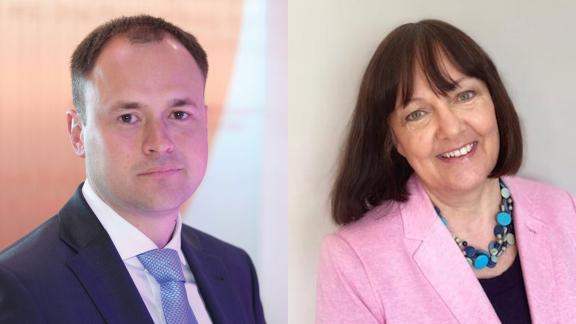Recognising the role independent providers play in integrated care systems

The pandemic has seen the entire health sector pulling together to deliver patient care, with NHS and independent providers playing a vital role. But as we move towards recovery and NHS transformation, this partnership working is more important than ever.
True health and care integration means all providers coming together, not just the public sector, and it’s important to understand how integrated care systems (ICSs) can engage effectively with the independent sector to support high-quality patient care.
Throughout the pandemic, independent providers played a key role in ensuring non-COVID-19 NHS treatment could continue. Independent hospitals delivered over 3.2 million NHS procedures under national contract, and vital work was done by independent sector diagnostic, community and primary providers in supporting NHS patients.
Beyond doubt, the pandemic has shown we are one system.
Currently, there are over 1,700 non-NHS providers of community-based services delivering around 40 per cent of total services, including around one in four NHS mental health beds.
Beyond doubt, the pandemic has shown we are one system. So how can we ensure that all types of providers are able to work together as part of their local ICS?
Examples of successful engagement
The ICS Design Framework states that all providers need to be engaged, but what does that look like?
At a recent IHPN/NHS Confed spotlight session for ICS leaders, we heard from three independent providers who have been working successfully with the NHS and local authorities.
Laura Clark, head of NHS relations at Circle Health Group, which includes BMI Healthcare, explained how they had always worked with the NHS before the pandemic, but their good relationships with local health services came to the fore in Nottingham when they were able to step up and offer support when the crisis hit.
The Park Hospital, part of Circle Health Group, teamed up with the Nottingham University Hospitals NHS Trust (NUH) to transform itself into a specialist cancer centre, expanding its specialist bed capacity and sharing staffing across the sites, enabling NUH to focus on treating COVID-19 patients without reducing care for cancer patients. The Park Hospital delivered up to 20 operations per day for the trust across all types of surgery, and the clinicians worked together to deliver the best care. Over half of those waiting for cancer treatment in Nottingham were treated at The Park Hospital during this time, helping to keep these patients separate from COVID-19 patients within ITU.
Connect Health, an independent community services provider, highlighted how they had transformed services in partnership with NHS trusts by taking a full pain management pathway into the community. Andrew Walton and Vicky Maskill explained how the organisation helped to educate patients to self-manage their conditions while on waiting lists, as well as providing pain-relief services in the community. This helped to reduce the number of patients needing to go into hospital for pain-related issues and improved access to care.
The team is now looking at ways to offer a similar service for those on waiting lists for orthopedic operations who might need support with physio, mental health challenges and pain relief while waiting to be seen. Self-management clinics and support around weight management could help improve their physical condition while waiting, relieving the burden on acute services.
Dr Vivienne McVey, chief executive of Virgin Care, talked about their current work with ICSs, where they are active partners. The organisation already has large integrated services and is working with NHS and local authorities across the country, putting it in a good position to work well within the new systems and share their experiences.
The ultimate goal for all providers – whether NHS or independent - is patient safety and good patient outcomes.
All three providers discussed the benefits but also the barriers of working within the new integrated systems, including a lack of understanding within the NHS about how independent providers are run and the kind of services they offer.
Lesson to be learned
A lot of independent providers are already working in an integrated way and the ultimate goal for all providers – whether NHS or independent - is patient safety and good patient outcomes.
However, there are still lessons to be learned.
For independent providers, navigating this new healthcare landscape of ICSs, ICBs, ICPs, provider collaboratives and so on can feel bewildering. Indeed, IHPN’s recent ‘state of the sector’ report found that despite members reporting improving relations with their NHS commissioners and local NHS providers, over half do not feel part of local systems.
Effective NHS/independent sector engagement is happening in many areas across the country, but we recognise that some systems are ahead of others. IHPN and the NHS Confederation’s ICS Network are looking at how we can support local systems to engage with independent providers and explore what good looks like, while encouraging ICSs and independent providers across the country to reach out and engage with each other. We also believe it is critical that ICSs consider which organisations from outside their systems could add value through investment, innovation and new ways of working.
While a ‘them and us’ mentality has often been a feature of the relations between the NHS and independent health sector, with the current pressures on the health system and significant learning from 18 months of closer working, anything less than an ‘all shoulders to the wheel’ approach will be doing patients a huge disservice.
Lou Patten is director of the NHS Confederation’s ICS Network. David Hare is chief executive of the IHPN. You can follow Lou and David on Twitter: @LouisePatten1 @dhareuk



